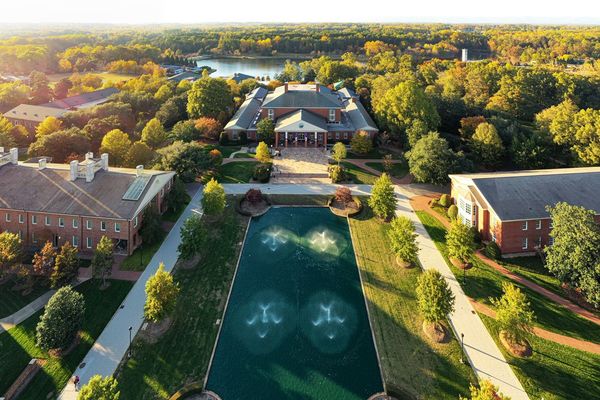Furman’s expectations tend to be proportional to its gifts. The university provides ample opportunities for learning, community engagement, internships, and study abroad, and in return it expects its students to be curious, engaged, and mature. These expectations of exemplary conduct are no different when it comes to COVID-19 and the Paladin Promise. Sometimes, however, a gap opens up between expectations and reality, as a recent incident involving Furman’s Student Government Association (SGA) president, Griffin Mills, illustrates.
According to a note of apology posted on Instagram, Mills recently attended a gathering in North Village that was in violation of the Paladin Promise. As SGA president, he is arguably the most prominent student figure on campus with an obligation to set a good example for the rest of the student body. In a Furman News article published on the first day of class, he explicitly recognized this informal yet important part of his job: “our role [as leaders of student organizations] will be to encourage our friends to … be smart.” He concluded, “we’re leaders and we need to step up to the plate.” As someone who is not yet on campus, I do not want to call for Mills’ resignation prematurely. But at the very least, he failed to meet some basic expectations that Furman requires of all students. He should at least be reprimanded, and students are right to be concerned about his leadership.
Such concern, however, ought to extend beyond his particular case to a broader failure of institutional thinking and decision-making at our school. Furman should encourage the kinds of good behavior that will prevent COVID-19 outbreaks in our community, but they should not base policy decisions on the assumption that students will adhere to those standards. Unfortunately, Furman’s plan to combat COVID-19 falls prey to this flawed assumption.
The official university messaging is clear and worth examining. The first Furman Focused weekly email update explained that “there are those who are skeptical about the ability of college students to put others ahead of themselves and who doubt our ability to have a successful in-person fall semester. We don’t feel that way.” They should feel that way! A healthy skepticism about college students’ habitual behaviors is warranted. Instead of relying on people to do the right thing, we need to be prepared for the possibility that they won’t.
The email also said that “our plan to maintain a healthy and safe campus is sound” and “now rests in the hands of our students and employees.” A plan that rests primarily in the hands of students and employees, however, is fundamentally not sound. The colleges and universities that have already reverted to virtual learning evince a particular pattern: poor planning on the part of administrators is foiled and then followed up by a one-sided blame game in which students alone, or perhaps God and the vicissitudes of nature, are held responsible for the failure. Fortunately, Furman has neither halted in-person learning nor reached this level of discourse, though the last week of communication—“if these types of gatherings continue, we will not be able to continue in-person classes”—has flirted with it.
The distinction between a “liberal” faith in human nature and a skeptical, “conservative” recognition of original sin and human depravity is arguably one of the foundational divisions of modern political philosophy. Although I’m uncomfortable with the label in other contexts, my position in this case is conservative. Students are indeed responsible for their own behavior and should be punished when they do stupid things that endanger public health. That said, unwise decisions made by 18- to 22-year-olds are a feature, not a bug, and Furman needs to account for them. Griffin Mills made a mistake, but he is not the problem. If the Furman administration wants behavioral change regarding COVID-19 on campus, fervent emails alone will not suffice. They need to shift their expectations and base their policies on better assumptions.
